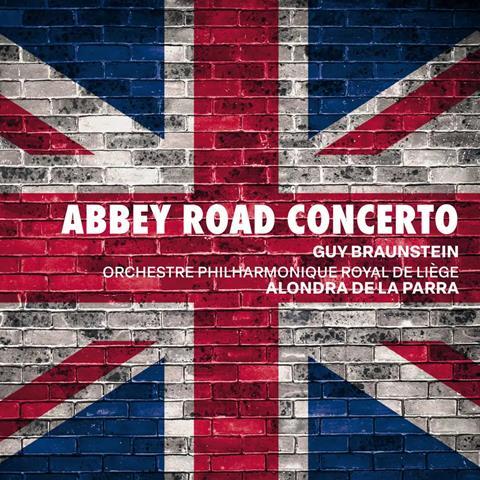Two works by English masters rub shoulders with the Beatles

The Strad Issue: September 2024
Description: Two works by English masters rub shoulders with the Beatles
Musicians: Guy Braunstein (violin) Liège Royal Philharmonic Orchestra/Alondra de la Parra
Works: Braunstein: Abbey Road Concerto. Delius: Violin Concerto. Vaughan Williams: The Lark Ascending
Catalogue number: ALPHA ALPHA869
It was the son of Guy Braunstein – violin soloist, conductor, teacher and for many years a leader of the Berlin Philharmonic – who asked his dad to play something by the Beatles, a band they both loved. One thing led to another, and Braunstein ended up effectively transforming the Fab Four’s 1969 album Abbey Road into a 35-minute violin concerto, its tracks kept in (generally) their original order, and spun together with linking interludes and intermezzos.
Among the many, many questions the project raises, one surely stands out: does Braunstein’s reversioning add anything to the Beatles’ original? In places – opener ‘Come Together’, for example – it seems intentionally not, since Braunstein almost replicates the 1969 track, with violin ornaments and slides replacing vocal inflections.
Elsewhere, he offers far more personal perspectives: ‘Something’ becomes almost a sentimental Elgarian salon piece, while the perky and somewhat forced good humour of ‘Octopus’s Garden’ seems to turn its back on the wide-eyed, childlike directness of Ringo Starr’s original. What holds Braunstein’s eclectic creation together, however, is his own strongly projected, richly imagined, velvety playing, his immaculate technique and glorious rhythmic suppleness – though a little more variety in tone and approach might have better matched the songs’ contrasting moods and textures.
Read: Violinist Guy Braunstein on his Beatles-inspired Abbey Road Concerto
Read: Call for violinists: are you up for Guy Braunstein’s ‘Blackbird’ challenge?
It’s an approach that Braunstein carries over into his Abbey Road Concerto’s companion pieces: his lark has a loud voice and a big personality, while his hearty Delius Concerto plays up the piece’s sometimes angular modernism to revealing effect.
As a classical reworking of a pop classic, and as an eclectic trio of works, the disc is a bit of a head-scratcher, sometimes compelling and perceptive, but other times verging on the reductive. Nonetheless, Braunstein receives vivid, sensitively nuanced support from the Liège Royal Philharmonic under Mexican-born conductor Alondra de la Parra, even if they’re kept firmly in the background in the otherwise rich, warm recording.
DAVID KETTLE











































No comments yet